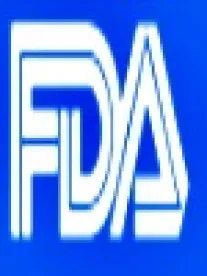Recall notification suggests the agency is ready and willing to use its new, enhanced enforcement authority.
On February 13, the U.S. Food and Drug Administration (FDA) began its first enforcement action under the mandatory recall authority granted by the Food Safety Modernization Act (FSMA). FDA issued a Notification of Opportunity to Initiate a Voluntary Recall (Notification)[1] to Kasel Associates Industries, Inc. for the firm's pet treats.
Background
In the wake of a number of large-scale food contamination outbreaks and recalls, on January 4, 2011, Congress enacted FSMA. Section 206 of FSMA (Federal Food, Drug, and Cosmetic Act (FFDCA) section 423) significantly expanding FDA's enforcement powers over potentially dangerous foods. Under the new law, FDA now has authority to order the mandatory recall of foods for which there is a "reasonable probability" that the articles are "adulterated . . . or misbranded . . . and the use of or exposure to such article[s] will cause serious adverse health consequences or death to humans or animals."[2]
In order to issue such a mandatory recall, FDA must first provide the responsible party with the opportunity to initiate a voluntary recall. If the party does not discontinue distribution and initiate the recall, the Secretary of the U.S. Department of Health and Human Services (HHS) is empowered to order that distribution stop and require a recall.[3] Should the secretary order a recall, the responsible party has the opportunity to request a hearing within two days to contest the order and convince FDA that the product should not be recalled.[4]
Prior to the enactment of FSMA, FDA generally had to rely upon manufacturers' voluntary recall efforts or obtain a court order to remove contaminated or misbranded foods, other than infant formula, from the food supply. With the passage of FSMA, however, FDA was provided one more tool in its arsenal to protect the food supply.
Prior to the section 423 Notification to Kasel, FDA had not flexed its new muscles in this particular area. Rather, it stated that it would reserve this power for "rare instances."
The Kasel Notification
As early as September 2012, Colorado and FDA inspectors had conducted tests on numerous finished and unfinished Kasel pet treat products and extensive environmental testing of Kasel's manufacturing facility. Most of these product and environmental samples tested positive for Salmonella, including food contact surfaces within the facility. In addition, FDA investigators specifically cited issues with the Kasel facility's sanitation and cleanliness, including food and clean-up procedures, pest infestation, and general disrepair of the building, fixtures, physical facilities, and manufacturing equipment.
On October 2, 2012, Kasel recalled one lot of affected products after the inspections by Colorado and FDA officials. On October 16, Colorado officials informed Kasel that two additional products tested positive for Salmonella, and, on October 17, Kasel recalled those products as well. On November 19, 2012, Colorado officials received a positive sample for Salmonella in another Kasel product, and FDA encouraged Kasel to recall the product. Kasel, however, declined to do so. As a result, on December 6, 2012, FDA issued a public health warning to consumers, announcing that products that were found to contain Salmonella were not recalled.
Following its second inspection of the Kasel facility in February 2013, FDA issued the Notification, which detailed Kasel's alleged extensive noncompliance record, its failure to recall contaminated products, the conditions in Kasel's facility, and the widespread Salmonella contamination of its products. The Notification further documented (i) the basis for FDA's determination that Kasel's products were adulterated under the FFDCA and (ii) that a reasonable probability existed that the use of or exposure to the products would cause serious adverse health consequences or death to humans or animals.
The Notification provided Kasel with an opportunity to conduct a voluntary recall of affected products within two days (i.e., requiring Kasel to immediately cease distribution of the affected products and give notice to other parties). The Notification stated that, if Kasel did not voluntarily cease distribution and conduct a recall, FDA may, by order, require the firm to recall the affected products. In response to the Notification, on February 21, FDA released a public notice announcing Kasel was voluntarily recalling all pet treats it manufactured from April 20 through September 19, 2012.[5]
Implications
FDA's issuance of the Notification provides another indication that the agency is ready and willing to use its new, enhanced enforcement authority under FSMA. FDA previously has employed another section of FSMA, section 102(b), to suspend the registration of Sunland Inc. due to the alleged presence of Salmonella in its manufacturing facility and in many of its products.[6] FDA's latest letter to Kasel demonstrates that FDA is now embracing the use of another new enforcement tool provided to it under FSMA.
FDA, however, has not abandoned its old ways of operating. It still issued a unilateral public health announcement before resorting to its mandatory recall authority. Unlike mandatory recall situations, FDA does not need to provide parties with any form of process prior to issuing such an announcement. Thus, while FSMA entitles parties to notice and a hearing prior to the initiation of a mandatory recall, the potential significance of this regulatory process will be diminished through FDA's continued use of public health announcements.
FDA's recent action, by itself, is insufficient to gauge the agency's willingness to directly use the mandatory recall authority. However, FDA's letter to Kasel indicates it will use the threat of its mandatory recall authority to achieve its objectives. In this case, Kasel was notified of its alleged manufacturing deficiencies multiple times, and it initiated several smaller recalls and was subjected to several inspections. However, it ultimately refused to issue a recall of a scope that would satisfy FDA. The Notification methodically built a case based on the facts to justify FDA's use of section 423 of the FFDCA, clearly laying forth the agency's arguments in anticipation of administrative review should a hearing have been requested.
It is also worth noting that, while FDA warning letters are routinely issued by the agency itself at the working level, the Notification was placed on HHS letterhead and signed by the Deputy Commissioner for Foods and Veterinary Medicine, Michael Taylor.
While the facts and circumstances surrounding the Notification are very specific, FDA did not shy away from the opportunity to use its new enforcement authority when it had a significant record of what it deemed to be noncompliance. However, it is too early to tell whether the agency will indeed use this new authority for only rare instances.
The flexing of FDA's administrative muscles in this particular area, along with what appears to be willingness to pursue food companies criminally, as shown by the recent indictments against the Peanut Corporation of America and its senior executives, should be seen as a clear signal to the food industry that it can be hazardous to take its food safety obligations lightly in the new FSMA environment.
[1]. View the Notification here.
[2]. FFDCA § 423(a).
[3]. FFDCA § 423(b)(1).
[4]. FFDCA § 423(c).






 />i
/>i
